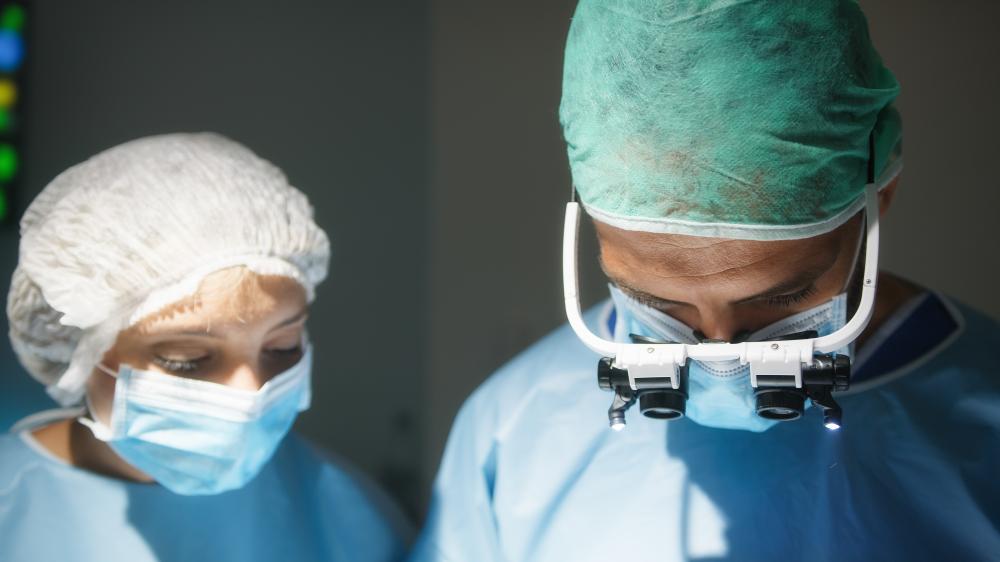Bradenton Eye Surgery

Understanding Bradenton Eye Surgery
Bradenton eye surgery represents a pivotal turning point for many seeking relief and solutions for a variety of eye conditions. Our practice, Coastal Eye Institute, stands at the forefront of offering comprehensive and specialized eye care that addresses a broad spectrum of needs, from routine examinations to complex surgical interventions. Our dedication to harnessing the latest advancements in ophthalmology has positioned us as a beacon of hope and excellence in the Bradenton region.
Our Commitment to Patient-Centered Care
At Coastal Eye Institute, our mission transcends beyond providing exceptional medical care. We believe that true healing begins with a compassionate approach, coupled with a deep understanding of our patients' unique stories and concerns. Each individual walking through our doors is met with unwavering support, clear communication, and a customized care plan designed around their specific needs. This holistic approach has fostered a strong bond of trust within the community we serve, affirming our commitment to not just treat, but truly connect with those in our care.
Services We Offer
Comprehensive Eye Care Solutions
Our array of services spans the full spectrum of eye health needs. From pediatric eye care, ensuring the youngest members of our community have access to early and effective interventions, to addressing age-related conditions such as cataracts and macular degeneration. Our fellowship-trained ophthalmologists specialize in various subspecialties, which means whether you're seeking treatment for glaucoma, retina issues, or require eyelid plastic surgery, you're in expert hands.
Advanced Surgical Procedures
Bradenton eye surgery encompasses a range of procedures, each tailored to address specific conditions effectively. Among these, cataract surgery represents one of our most frequently performed operations, utilizing cutting-edge techniques to restore vision with precision and care. Likewise, our expertise in LASIK surgery offers a transformative solution for those looking to correct their vision and reduce dependence on glasses or contact lenses.
Why Choose Us for Your Bradenton Eye Surgery
The decision to undergo eye surgery is significant, and choosing the right practice is paramount to ensuring the best outcomes. Coastal Eye Institute prides itself on a legacy of excellence, backed by a team of highly specialized ophthalmologists and a compassionate support staff dedicated to making your journey towards better eye health as smooth and comfortable as possible.
Our practice is rooted in a patient-first philosophy, where your needs, concerns, and goals shape the care we provide. This approach, combined with our relentless pursuit of adopting the latest technologies in eye care, ensures that our patients not only achieve optimal surgical outcomes but also enjoy a quality of life marked by improved vision and eye health.
Patient Testimonials
Perhaps the most telling reflection of our commitment and expertise comes directly from those we've had the privilege to serve. Stories of restored vision, pain relief from chronic conditions, and heartfelt appreciation for the care provided underscore the difference Coastal Eye Institute has made in the lives of our patients. These personal accounts not only affirm the effectiveness of our treatments and surgeries but also highlight the deep sense of empathy and dedication that characterizes our practice.
Preparing for Surgery
Undergoing Bradenton eye surgery at Coastal Eye Institute is supported by a comprehensive preparation process, ensuring you're fully informed and ready for your procedure. From initial consultations to detailed pre-surgical instructions, our team is with you every step of the way, addressing any questions or concerns you may have. This meticulous preparation underscores our commitment to not just achieving the best surgical outcomes, but also to ensuring a smooth and worry-free experience for our patients.
Aftercare and Recovery
Post-surgical care is a critical component of Bradenton eye surgery, and at Coastal Eye Institute, we place immense importance on your recovery and long-term eye health. Our aftercare programs are designed to support a swift recovery, minimize discomfort, and promptly address any complications should they arise. Regular follow-up appointments, personalized recovery plans, and easy access to our team of specialists ensure that your journey back to health is marked by compassion, professionalism, and comprehensive support.
Bradenton eye surgery at Coastal Eye Institute represents more than just medical procedures; it embodies our unwavering commitment to enhancing the quality of life for our patients through exemplary eye care. Anchored by a team of distinguished ophthalmologists, state-of-the-art facilities, and a compassionate approach to medicine, we continue to set the standard for excellence in eye health in the Bradenton region. For anyone contemplating eye surgery, know that with Coastal Eye Institute, your vision is in the best of hands.

What is the most common eye surgery for seniors?
For seniors, cataract surgery is by far the most common eye procedure we perform at Coastal Eye Institute. It's a transformational surgery that can significantly improve quality of life. Imagine a beloved grandparent who used to love reading but has been finding it increasingly difficult due to cataracts. After the surgery, they're often able to return to their books with ease, something we've seen time and again. It's not just about clearer vision; it's about restoring a person's independence and joy in their daily activities.
Where is the best place in the world for eye surgery?
While many places around the globe offer high-quality eye surgery, the "best" location often depends on the specific needs and circumstances of the individual. At Coastal Eye Institute, we pride ourselves on delivering exceptional care and utilizing state-of-the-art technology for our patients, right here in Bradenton. We've invested in the latest advancements to ensure our patients receive the best possible outcomes. The right place should not only have advanced technology but also empathetic, highly skilled professionals. That combination is what we believe truly makes a place the best for eye surgery.
What eye conditions require surgery?
Several eye conditions might necessitate surgical intervention. Apart from cataracts and refractive errors, we also treat glaucoma, retinal detachments, and macular degeneration through surgery. Each condition has its nuances. For instance, glaucoma surgery aims to reduce intraocular pressure, potentially preventing further vision loss. It's fascinating how these surgeries can offer not just a better vision but also peace of mind, knowing that an individual's eye health is being proactively managed.
What is the eye surgery for correct vision?
LASIK surgery is one of the most well-known procedures for correcting vision. It's designed to reshape the cornea, thereby correcting refractive errors like myopia, hyperopia, and astigmatism. The joy in someone's eyes the first time they see clearly without glasses or contact lenses is truly special. It's as if they're seeing the world anew. We're particularly proud of our LASIK surgery outcomes at Coastal Eye Institute, helping countless individuals achieve their dream of clear vision.
What are some of the latest advancements in eye surgery?
Advancements in eye surgery are incredibly exciting. We're seeing a shift towards even less invasive procedures with quicker recovery times. For instance, femtosecond laser-assisted surgery is a game-changer for precision in cataract surgery. Then there's the development of intraocular lenses that can adjust focus, mimicking the natural lens of the eye. It's like living in the future! Staying at the forefront of these advancements allows us to offer our patients the best possible care and outcomes.
How should one prepare for eye surgery?
Preparing for eye surgery is a crucial step towards a successful outcome. At Coastal Eye Institute, we ensure our patients fully understand the procedure and any necessary preparatory steps. This includes everything from fasting to arranging transport on the day. We also discuss potential nerves or fears; it's perfectly normal to feel a bit apprehensive. Remember, our goal is not just to perform a successful surgery but to ensure you feel supported and confident every step of the way.
Why is patient-centered care crucial in eye surgery?
Patient-centered care is the cornerstone of what we do at Coastal Eye Institute. It goes beyond just treating an eye condition; it's about treating the person as a whole. This approach ensures that care plans are tailored to the individual's needs, concerns, and lifestyle. It fosters a deeper connection and trust between patients and their care team. Ultimately, we believe this philosophy not only leads to better outcomes but also enhances the overall healthcare experience for our patients.